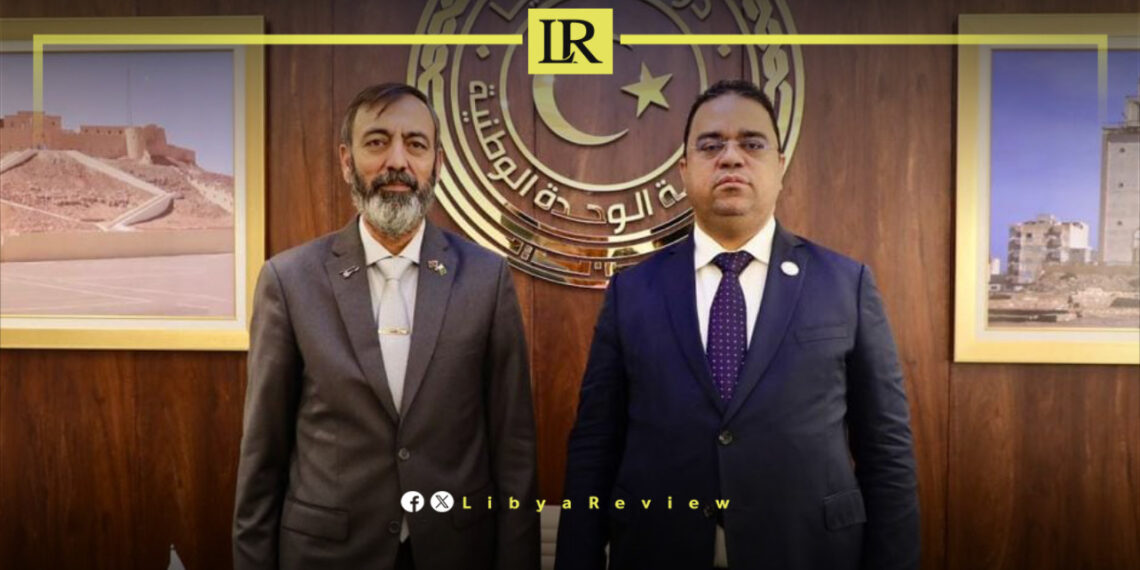On Thursday, Ali Al-Abed, the Minister of Labor and Rehabilitation of the interim Government of National Unity, discussed the registration of Pakistani labor within the ‘Wafid’ electronic system. This move aims to streamline their procedures legally and systematically.
The discussion took place during a meeting with Anjum Anayat, the Pakistani Ambassador to Libya, focusing on enhancing bilateral cooperation in the workforce sector, according to a post on the ministry’s Facebook page.
The talks centered around the programs and regulations governing foreign labor in Libya in accordance with Libyan and international laws, contributing to improving the work environment and benefiting both parties involved.
Libya has been in chaos since a NATO-backed uprising toppled longtime leader Muammar Gaddafi in 2011. The county has for years been split between rival administrations.
Libya’s economy, heavily reliant on oil, has suffered due to the ongoing conflict. The instability has led to fluctuations in oil production and prices, impacting the global oil market and Libya’s economy.
The conflict has led to a significant humanitarian crisis in Libya, with thousands of people killed, and many more displaced. Migrants and refugees using Libya as a transit point to Europe have also faced dire conditions.
The planned elections for December 2021 were delayed due to disagreements over election laws and the eligibility of certain candidates. This delay has raised concerns about the feasibility of a peaceful political transition.
Despite the ceasefire, security remains a significant concern with sporadic fighting and the presence of mercenaries and foreign fighters. The unification of the military and the removal of foreign forces are crucial challenges.


